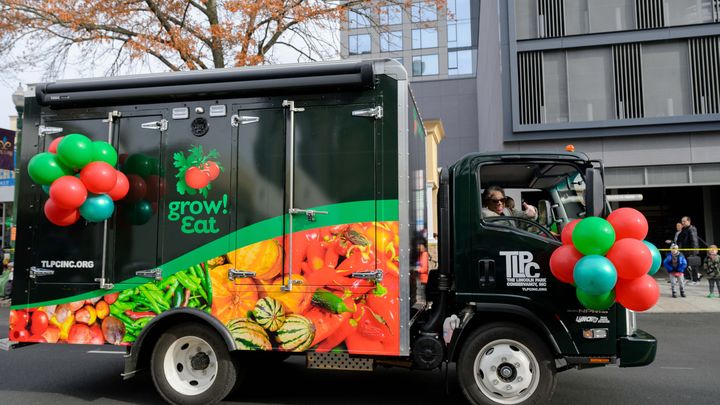
The Lincoln Park Conservancy - grow! Eat Initiative
Donation protected
RAISING FUNDS FOR THE LINCOLN PARK CONSERVANCY'S FOOD INSECURITY INITIATIVE - grow! EAT
The Lincoln Park Conservancy, Inc., a 501c3 community organization in New Rochelle, NY, needs your help to feed the food insecure of Westchester County. Since the Pandemic, food insecurity has increased and today, 1 out of 3 families are in need of healthy, nutritious food. grow! Eat provides locally-grown, pesticide-free produce from our grow! Eat farms and partners delivered to directly to residents, free of charge. grow! Eat's mobile vegetable truck goes directly to our friends, so access to fresh food is no problem.
Your support will be used to purchase composted soil, seeds, seedlings, tools, wheelbarrows, farm supplies, equipment and more. The funds will also be used to maintain farm production and the delivery of the produce to our neighbors.

The first program established by The Lincoln Park Conservancy was grow! Lincoln Park Community Garden, a successful 10,000 sq. ft. organic, legacy farm established in 2011 on the campus of Lincoln Elementary School to keep the history of Lincoln School alive and to educate the community about sustainability, food security,organic gardening and how to become stewards of our changing environment.

grow! Lincoln Park Community Garden hosts workshops for students from K-12, college students and adults. grow! Lincoln Park’s Butterfly & Native Plant Garden is a unique teaching environment and one of very few in Westchester County that is attracting the endangered Monarch butterfly and other beautiful species that support the ecosystem.

Beautiful Butterfly alights on native plant at grow! Lincoln Park Native Plant Butterfly Garden.

Raised beds at grow! Lincoln Park Community Garden.
Thank you for your support!
Please visit us at:
Facebook: @growlincolnpark
Instagram:#thelincolnparkconservancyinc
Instagram: #growlincolnpark
Twitter:@the_conservancy
Twitter: @growlincolnpark
Organizer
Linda Tarrant-Reid
Organizer
New Rochelle, NY